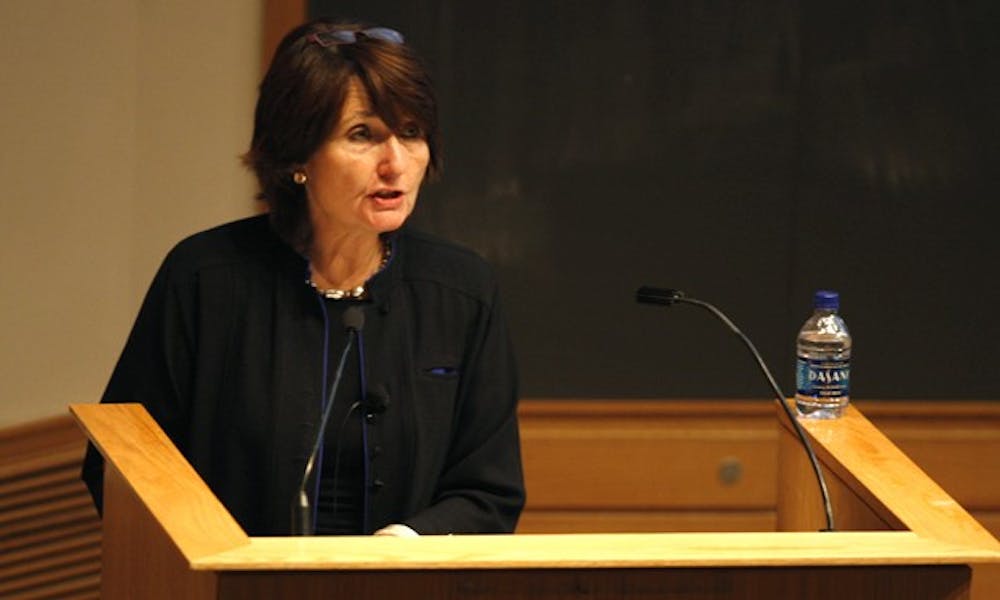Clicking through “photos tagged of you” on Facebook may be the most common way today’s students reflect on the past.
But Diana Taylor, university professor at New York University’s Tisch School of the Arts, explained Monday that she believes modern technology is damaging the conventional idea of “archives.”
Tisch, the second speaker to take part in the Provost Lecture Series this semester, delivered an address in Love Auditorium called “The Digital Age as Anti-Archive?” Journalist Seymour Hersh spoke in Page Auditorium Oct. 13 to kick off the series.
The development of technology counteracts the traditional notion of archives, Taylor said.
“You can broadcast yourself through YouTube, Facebook allows you to share your life with others and Twitter lets you share what you are doing at every moment,” Taylor said.
But she noted that this prevalence and development of technology has deteriorated archives in the customary sense because what we store through technology and the Internet may not be accessible to future generations.
“Her speech was intriguing and she did a good job keeping it interesting for the audience,” said Gerry Canavan, a fourth-year graduate student in literature.
Wrestling with the idea of what the digital age does to the archive is a refreshing and difficult thought because many take it for granted, Canavan said.
Taylor referenced TIME Magazine’s 2006 Person of the Year issue to emphasize her point. The person of that year was “you.”
Although TIME said that people have control over information as individuals, it is not very relevant to each person because those who were pictured in the magazine as portrayals of “you” were all young and beautiful, Taylor said. Also, the people pictured were not accurate representions of most people’s identities and jobs.
Taylor said technology is improving rapidly, adding that her argument will only become more apparent as time progresses.
The NYU professor added humor to her speech by saying that when she clicked on one of the links on TIME’s Person of the Year: “You” page, it took her to a Web site related to former Russian President Vladimir Putin.
Canavan said he was pleased with the event overall.
“How we go about accessing information may be different in the future,” he said. “It was interesting how she was saying how we keep track of it is not archived.”
Get The Chronicle straight to your inbox
Signup for our weekly newsletter. Cancel at any time.

